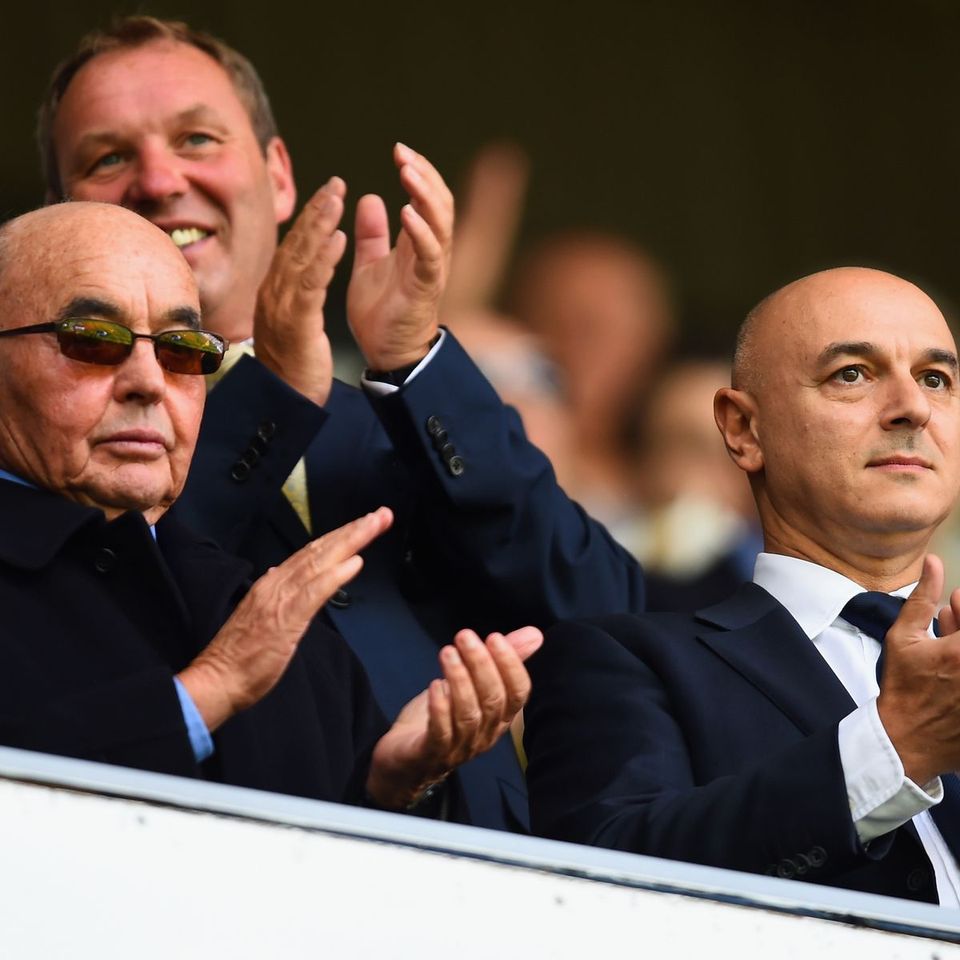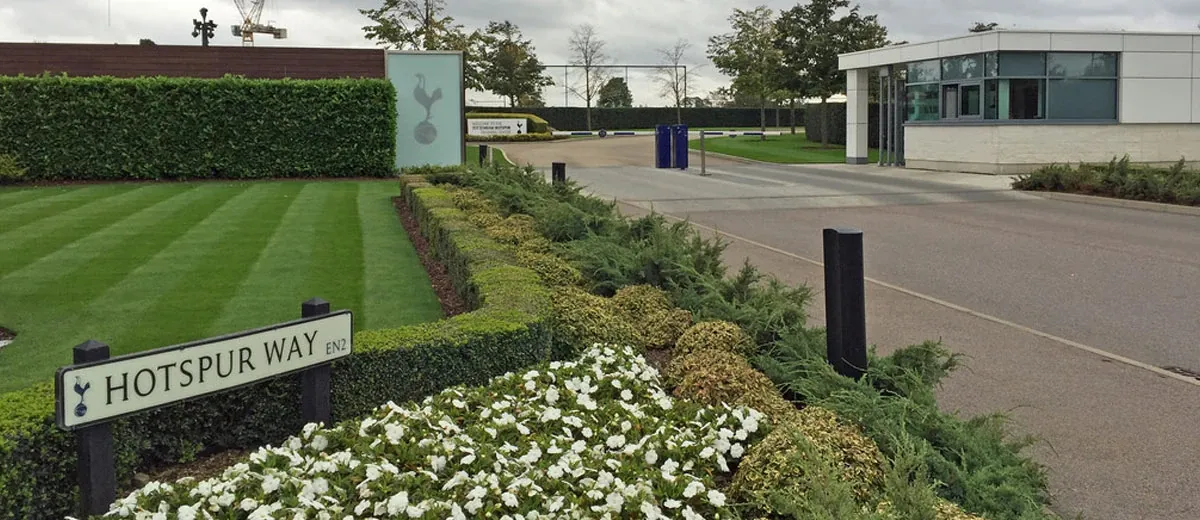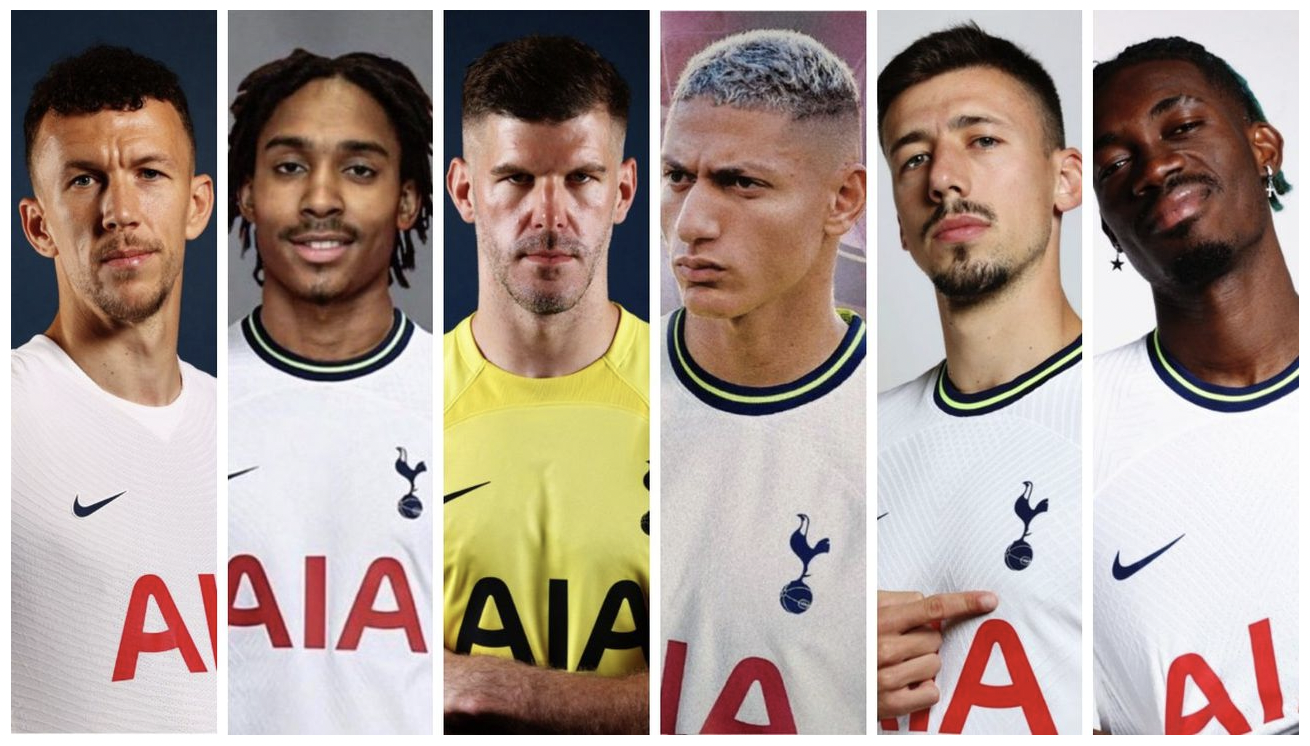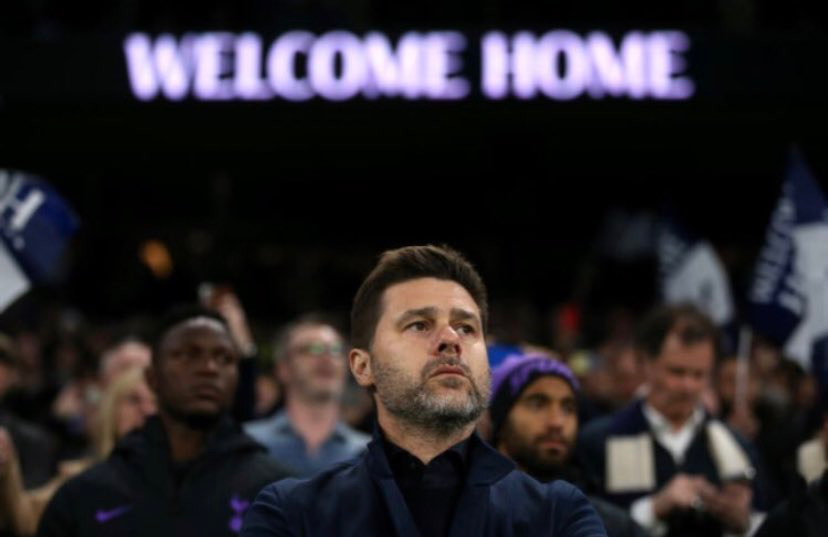January Bonus Issue — Steering the Ship

For this month's bonus post for paid members, I'm sharing a long-read essay on Tottenham's ownership and chairman. I had planned to also include thoughts around the issue of pitch quality in women's football and how it's affecting the professionalization and growth of the game, but it turns out I had way more to say about ENIC & Levy than I first thought, so I'll save that topic for February!
Steering the Ship
Evaluating ENIC and Daniel Levy's stewardship of Spurs
While I've written several times already this month about Antonio Conte and the management question at Spurs, I deferred writing about the ownership and board until I had a little more space to expound. It's obviously a heated topic amongst the fanbase in recent weeks, and I hope I can offer a more nuanced view than some of the unnecessarily rash and reactive takes I've seen floating around.
It's probably helpful to first reiterate that I've only been a dedicated Tottenham fan since the beginning of the 2018/19 season, so my perspective is obviously going to be different than that of a lifelong fan who has witnessed many ownership changes and shufflings of the board across the duration of their Spurs fandom. We're all working from different contexts and with different levels of gut feelings—that is to say, the emotional experiences of joy, despair, and every feeling in between that inevitably gets reflected back onto the higher-ups as praise or blame, fairly or not.
So when I first became a Spurs fan, the old White Hart Lane had already been demolished and the first team was playing its fixtures at Wembley. I got to experience the excitement (not in person, unfortunately) of seeing the new Tottenham Hotspur Stadium open and a new era of Spurs beginning. I also had the misfortune of experiencing the sacking of the beloved manager who was so integral in initially drawing me to the club as a supporter, Mauricio Pochettino. Since then, the club has gone through two permanent managers and one interim manager before hiring the current gaffer, Antonio Conte.
In the same time, I've also become an enthusiastic fan of the Women's team, though it's often difficult to tell how much of the Women's club operations, finances, etc. are linked with the Men's team—transparency is not a given in women's football, much to my frustration. So for the purposes of this essay, I'm largely going to set aside the trajectory of the Women's team when assessing the ownership' and the board's track record at the club. Analyzing the state of Spurs Women could be a whole other essay in itself, which perhaps I will get to in a future bonus issue of the newsletter!
If I had to quickly summarize the impact that ENIC (the ownership group headed by Joe Lewis) and the board (chaired by Daniel Levy) have had on Tottenham Hotspur, I would say that they've laid a good foundation for success when it comes to factors outside of football, but have often taken their eyes off the ball when it comes to progress on the pitch. As we all know, those two areas have to coexist for a football club to truly be successful.
Location, location, location
When it comes to considering the off-the-pitch business (for which Levy rightfully takes full credit, as the stadium has been his special passion project since long before it actually came to fruition), they have undoubtedly set Tottenham up for a stable financial future. Not only is the state-of-the-art stadium a consistent and predictable source of income for the club (barring, you know, global pandemics), attracting a variety of entertainment events from music to NFL to fight nights, but it's also a strong recruitment tool for prospective players. How many times have we heard a new transfer say in his introduction video that he can't wait to "play in the beautiful stadium?" I obviously can't speak to the amenities for fans from personal experience, as I have yet to make it to a game there myself, but by all accounts, the fan experience is unrivaled by other stadiums across the league—though the conversation about high ticket prices is definitely important to acknowledge. It also helps that Tottenham had the fortune of being founded in London, which is always an appealing destination to players from both inside and outside England.

The training facilities at Hotspur Way are also a crucial club asset. Even though we sometimes question if the medical staff is up to standard, the grounds and equipment that the team has to work with certainly are. This advantage also applies to the Women's team, as it is still a rarity for a professional women's team to have training facilities of world-class caliber. The training facilities also include player accommodations that have been utilized by various national teams (which I can only assume provides another revenue stream for the club). I won't get into the sustainability measures, but they're a reason for pride as a fan since climate change is increasingly affecting the sport of football (more on that in the next essay) and it's nice to see the club leading in this area.

So all in all, everything has been set up to give the current manager and player squad the best opportunity to thrive in a macro sense. In a micro sense, there is one more factor that affects how that off-the-pitch foundation translates into on-the-pitch success: transfer strategy.
Budgeting vs breaking the bank
The question of how much transfer spending is "enough" is a tricky one. You want the club to do everything it can to take advantage of built-up momentum, but there have to be some constraints at the end of the day—both fiscal and ethical. The one thing I hope we can all agree on is that we can be thankful to ENIC and Levy for never putting Tottenham at such financial risk that bankruptcy (or going into administration, as I believe the English phrase it) is a possibility. I also think it's an unequivocal good that our club does not engage in practices that blatantly flout the Financial Fair Play measures, or test the boundaries to the point of instigating new rules à la Chelsea this past window. That the club never puts itself at risk of being stretched too thin is a positive sign of long-term financial health.
However, there is a point at which the club can become too cautious and get left behind by its rivals. The most obvious example of this is the year Tottenham had the dubious distinction of being the first team in the 15-year history of the summer transfer window to not make a single signing. Sure, at the time it was seen as a necessary evil because of the cost of the new stadium, but in reality, it was a "sliding doors" moment that might have meant the difference between winning a title under Pochettino or not, as was sadly the outcome.
In windows since (under new managers), the club has begun to invest more in the squad with varying success. Here I define success as progress, in whatever form, not just as winning a trophy, which we all know Spurs haven't done in a very long time. Sometimes it has been a few steps forward and then a few steps back, as certain individual transfers have either transformed the team (like Cristian Romero, Dejan Kulusevski, and Rodrigo Bentancur) or failed to make their mark (Tanguy Ndombele, Giovanni Lo Celso, and Sergio Reguilón).
You have to cut ENIC a little bit of slack since they did inject cash into the club this past summer purely for squad investment. Now, whether the club (particularly, sporting director Fabio Paratici, man at large) has invested that money wisely is another matter; the summer transfers have been a bit of a mixed bag. Levy and the rest of the board bear some responsibility for that since they appointed Paratici and his scouting staff, and Levy himself has been instrumental in at least a couple of signings every transfer window (Djed Spence and Pedro Porro being the most recent examples).

So I do think it's a bit of a myth that Conte, specifically, has not been "backed." You could definitely make that argument for Spurs Men's other recent managers, with a few notable exceptions—Ndombele and Romero being the priciest incoming transfers. But Conte has been given significant funds and, it seems, a certain amount of discretion when it comes to which players have joined Spurs under his tenure. Spurs' transfer strategy since he took over as manager has clearly catered to his preferred wingback-centric tactical system.
As I've spoken about in recent issues, there seems to be some disconnect between the club's long-term strategy and Conte's intentions (or lack thereof) to sign a new contract. So molding the squad to Conte's vision could prove to be a costly error if he jumps ship in the summer. I won't rehash my reasoning for wishing the club would replace Conte with a different manager now rather than playing this game of ultimatum with him, but I do agree that the situation we've found ourselves in with the management question is proof that Levy and the board do not have a clear and firm strategy for on-the-pitch success. It doesn't help that Pochettino continues to loom large in the fanbase's collective psyche, mostly because of the way his unexpected sacking left us all with feelings of unfinished business. You get the sense that at any moment the club could bring him back—which would not be entirely unwelcome from my perspective, but I understand why some fans would rather not go there. Whether it's Conte, Pochettino, or another as-yet-unknown manager who's going to lead us into the next season, it would be nice to have some clarity sooner rather than later, and also to see a legitimate commitment to that decision from the board; no more half-hearted transfers, please!

ENIC in or ENIC out?
I have been frustrated by the larger fan debate about being ENIC in/out or pro/anti-Levy, for three reasons: 1) the not-so-subtle anti-Semitism that many of the most vocal critics have engaged in, 2) the abundance of conspiracy theory thinking around both parties, and 3) the lack of realism when it comes to alternatives.
I hate to even dignify the first topic with any further mention, but it must be said that describing Joe Lewis or Daniel Levy as "parasites" who are sucking the club dry of profits is so blatantly anti-Semitic and unacceptable. Critics who have said that need to find another metaphor that isn't playing into long-standing anti-Semitic tropes.
What I mean by conspiracy theory thinking is the attitude that ENIC and Levy's leadership is a "regime" that managers and players have suffered under. This rhetoric is so over-the-top. I think that for the most part, recent managers and playing staff have joined the club with a full understanding of their role, even if they might not have always seen eye-to-eye with the board on specific details and decisions. I just think it's ridiculous to assign nefarious intentions to ENIC/Levy. Like everyone who owns or runs a business (which Tottenham is, however much we might not like to think of it that way), they sometimes make mistakes. Those mistakes affect their own personal reputations and fortunes, so I don't think they make those mistakes purposefully or lightly. And it's nothing personal against fans for them to be strategic in their business decisions. It would be wise for us to keep things in perspective and realize that we have it pretty good compared to the majority of Premier League clubs in terms of stability and future prospects. Which brings me to the final topic...
When I ponder the possibility of new ownership, my most immediate concern is that we could be taken over by a state-backed group, like Newcastle United most recently and Manchester City before them (not to mention the other examples across Europe). Part of my aversion to such an ownership change is the American in me that values competitive measures like salary caps and contract tiers that prevent any one team from outspending its opponents, but the other part is simply that I am 100% opposed to a nation-state using our club for sportswashing purposes. I would find it very difficult to continue supporting the club if that ever became a reality. Then there's the possibility of being taken over by a crypto billionaire or someone with similarly tech-based wealth, who tend to not be very ethical or sensible (just look at what's happening to Twitter lately for an example of such "leadership" and "innovation"). Joe Lewis obviously isn't a perfect person, because no one attains his level of wealth through entirely scrupulous means, but as billionaires go he is relatively tame. And again: he is not a literal country engaging in geopolitics. Do we really need to go down the road of finding a new buyer? I personally am not at that point—yet. I am not ENIC out.
As for Daniel Levy, he could definitely stand to be more flexible when it comes to cooperating with the sporting director and/or manager, but I also think he deserves a lot of credit for building Tottenham into the club it is today. I may not have been around for the darkest years in the 90s, but I've heard enough to know that Spurs were not a consistent top-6 club when he was appointed as chairman. And honestly, he says that he is a Spurs fan, and I think it's unfair to doubt his word. We might sometimes disagree if certain decisions he's made have been good for the club, but I would never suspect him of sabotage or not caring. Just because he wears a stoic expression while watching Spurs' matches does not mean that he isn't experiencing emotions about the team's performances and results. We're not inside his head. I do hope that Levy will loosen his grip on the reins of Spurs' transfer strategy and stick to what he does best (commercial strategy), but at this time I still back him as chairman of the board.
When it comes to negative results on the pitch, I don’t like the argument that blame can be placed solely on the ownership/board, or all on the manager. Nothing in sports is black and white, because there are always various factors at play—including the fact that the other team is also always trying to win. If others want to argue that it’s just ENIC and Levy to blame, fine. But they shouldn't call other people stupid for acknowledging that there’s nuance, or imply we aren’t watching the same games. We all care, and that’s what matters. That's why we're fans of the club.
COYS

Thank you for reading!
I hope you enjoyed this exclusive members-only issue. Your monthly support keeps Spurs Across the Pond running and is much appreciated.

Member discussion